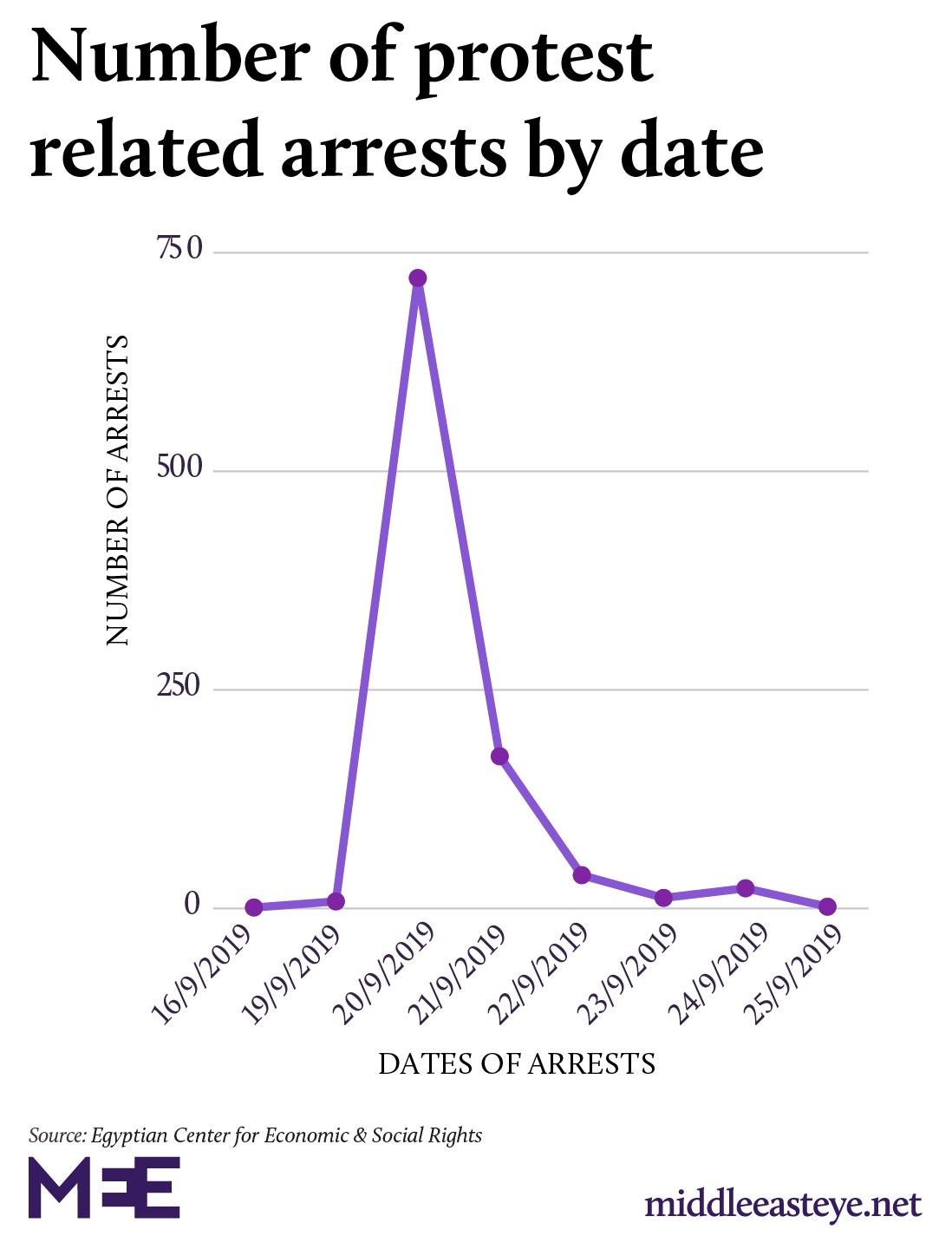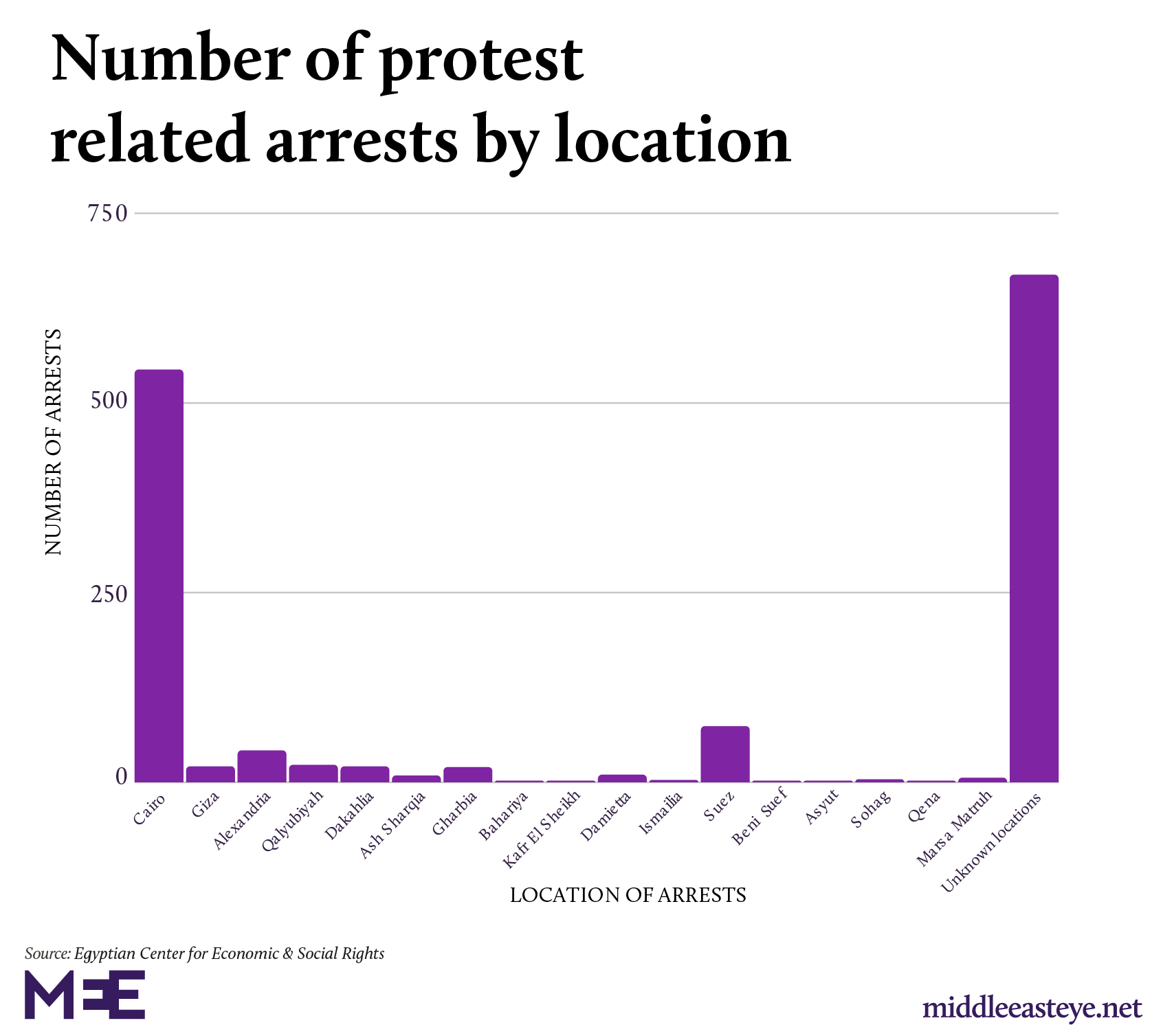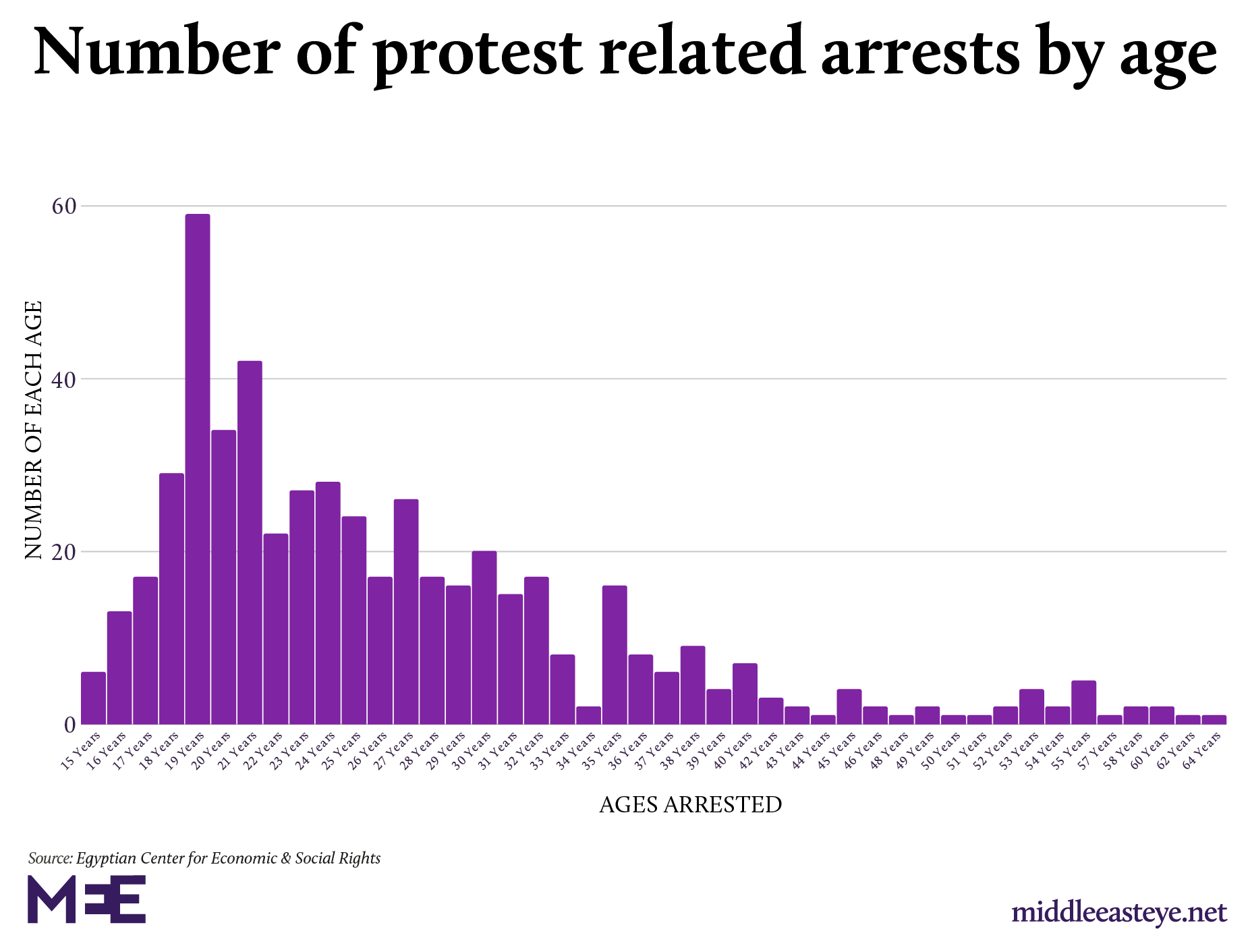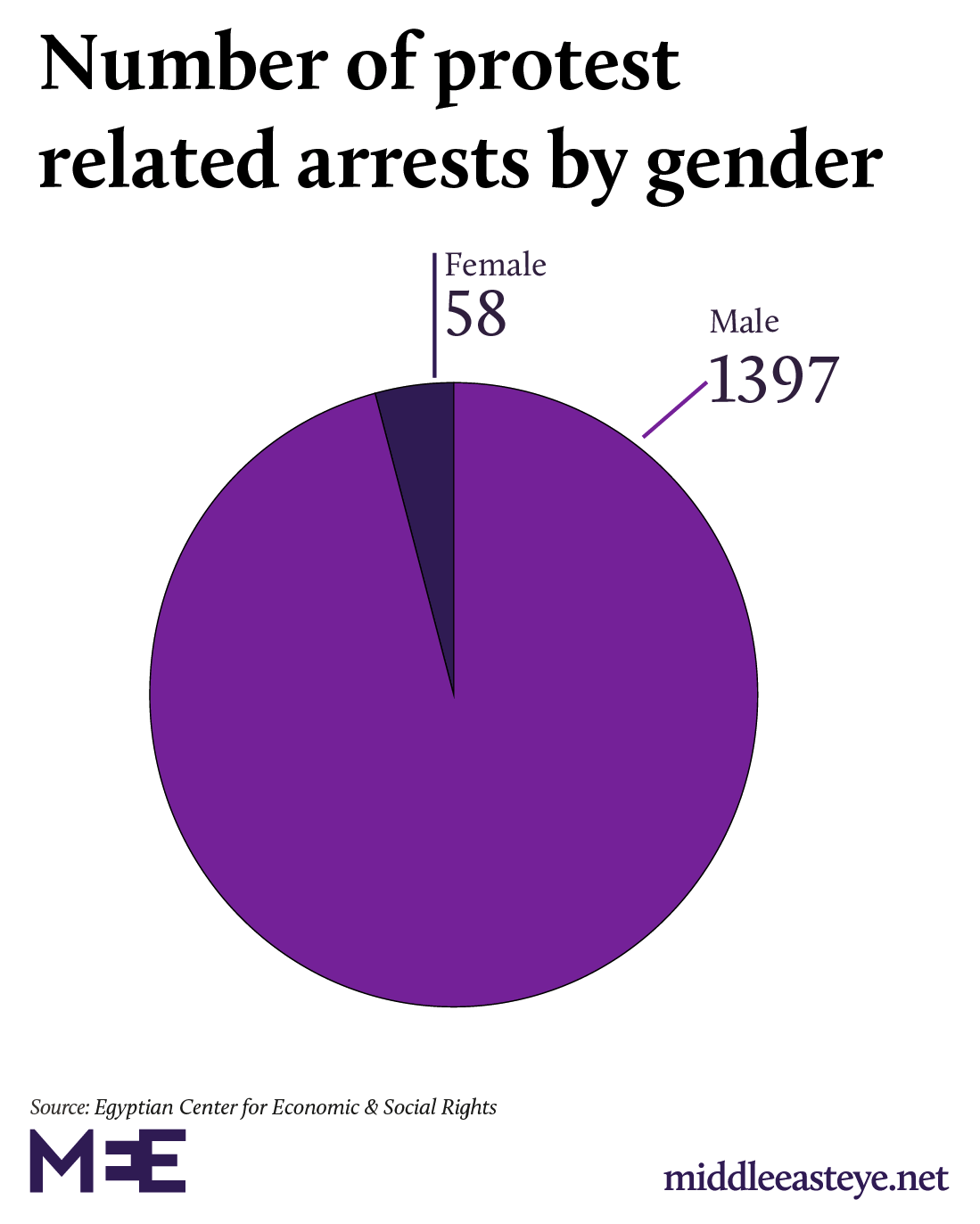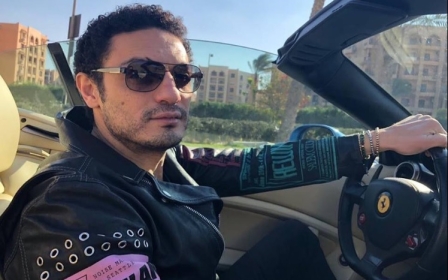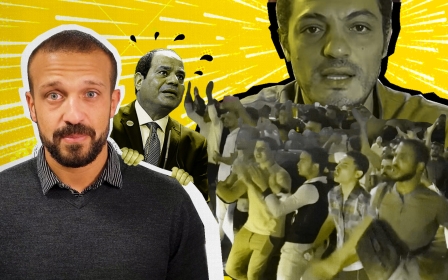Egypt protests: Who is demonstrating and who is being arrested?
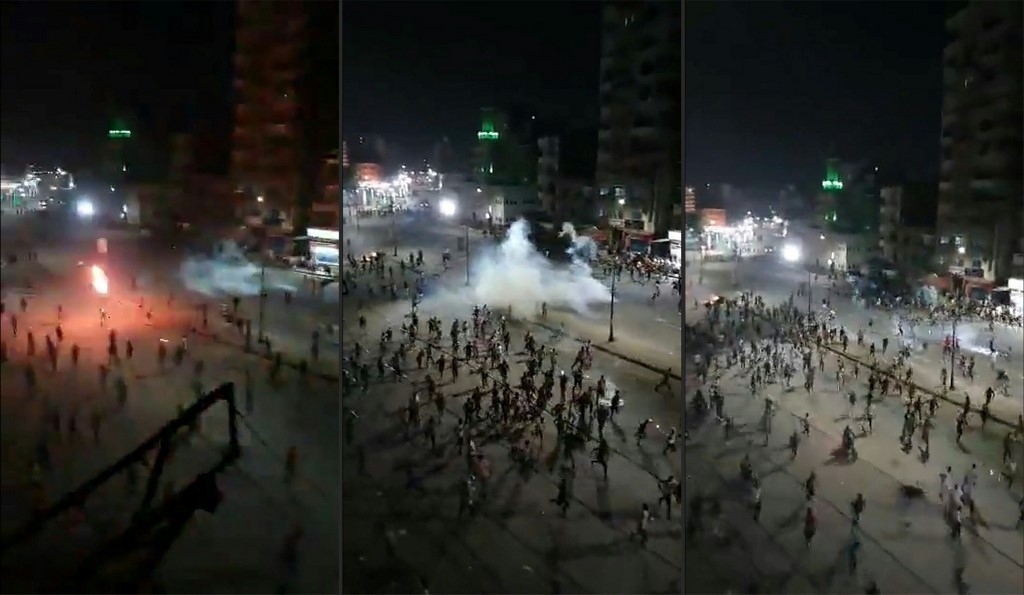
Protests broke out across Egypt last Friday following weeks of calls from tycoon-turned-whistleblower Mohamed Ali for people to head to the streets and demand the fall of the country's president, Abdel Fattah el-Sisi.
In several different cities, large crowds did just that into the early hours of the morning, demanding Sisi to step down and bring an end to military rule. Rights groups say police used tear gas, rubber bullets and live ammunition to disperse protesters.
Meanwhile, Egyptian state media has reported that the videos of protesters on Friday have largely been fabricated or in fact show footage from older demonstrations.
The Egyptian Center for Economic and Social Rights has documented more than 2,000 arrests so far, linked to the protests that took place on Friday evening, with arrests continuing.
New MEE newsletter: Jerusalem Dispatch
Sign up to get the latest insights and analysis on Israel-Palestine, alongside Turkey Unpacked and other MEE newsletters
Demonstrating in Egypt without permission can land you in jail, so protesters will have taken huge risks to go out into the streets. So who went?
Here's a breakdown of age, date and location of those arrested, based on figures released earlier this week. While some of those picked up were not protesting, the vast majority were, offering a snapshot of exactly who is demonstrating.
Protesters headed out into the streets on 20 September, the date suggested in Ali's videos, which caused a sensation in Egypt with allegations of corruption and misuse of public funds by Sisi and other Egyptian officials.
The majority of arrests took place on Friday but more were made as protests continued over the weekend. Security forces reportedly detained people close to the protests who were recording what was happening.
Human Rights Watch has urged Egyptian authorities to protect the rights to peaceful protest and uphold Egypt’s obligations under international human rights law.
“The authorities should recognise that the world is watching and take all necessary steps to avoid a repetition of past atrocities," Michael Page, HRW's deputy director of Middle East and North Africa, said in a statement.
Amnesty International has also called on world leaders to confront Sisi about the crackdown on protesters which came as the Egyptian President held meetings with world leaders at the United Nations General Assembly in New York, including US President Donald Trump, British Prime Minister Boris Johnson, and Spanish Prime Minister Pedro Sanchez.
“The government of President Abdel Fattah el-Sisi is clearly shaken to its core by the outbreak of protests and has launched a full-throttle clampdown to crush demonstrations and intimidate activists, journalists and others into silence,” said Najia Bounaim, North Africa campaigns director at Amnesty International.
“The world must not stand silently by as President el-Sisi tramples all over Egyptians’ rights to peaceful protest and freedom of expression."
Protests were widespread across cities in Egypt with the highest number of arrests in Cairo, where large crowds had gathered in Tahrir Square, the central site of the 2011 uprising that toppled longtime autocrat Hosni Mubarak.
Protesters shouted “the people want to topple the regime” and “step down Sisi”.
A Middle East Eye correspondent in Cairo at the time said he witnessed riot police dispersing protesters.
"No deaths, but I saw about 20-25 people arrested and held in police trucks. Some were released later. Currently downtown is full of riot police and plain-clothes policemen," he reported.
A large number of protesters were also picked up in Suez, which saw some of the largest protests outside the capital.
On Saturday, a demonstrator in Suez told AFP that around 200 people had turned out to protest. "Security forces fired tear gas, rubber and live bullets and there were injuries," he said.
A wave of arrests also took place in the coastal city of Alexandria, where people protested outside their homes and near the town centre. Other places that saw crackdowns included Qalyubiyah, Dakahlia, Ash Shariqa, Damietta and Ismailia.
However, a large number of protesters were arrested in unknown locations.
The majority of those arrested so far have been teenagers, including several 15-year-olds who would have been less than 10 years old when Sisi came to power in a 2013 coup.
While the vast majority of protesters were between 18 and 24, there were also older people out in the streets, including the oldest arrested protester, a 64-year-old.
Discontent over rising prices has grown as Sisi's government imposed strict austerity measures in 2016 as part of a $12bn loan package from the International Monetary Fund.
One in three Egyptians lives below the poverty line on less than $1.40 a day, according to official figures released in July.
More than 50 of those arrested were women, according to the Center for Economic and Social Rights.
Among those arrested was award-winning human rights lawyer Mahienour El-Massry, who was arrested after leaving the state security prosecutor's headquarters in Cairo, where she had been assisting those arrested during the demonstrations, her lawyer Tarek al-Awadi said.
Tens of thousands of people have been detained by Sisi's government since 2013 in a widespread crackdown on opposition that has targeted activists from the now-banned Muslim Brotherhood of deposed former president Mohamed Morsi and other political dissidents.
Middle East Eye delivers independent and unrivalled coverage and analysis of the Middle East, North Africa and beyond. To learn more about republishing this content and the associated fees, please fill out this form. More about MEE can be found here.


